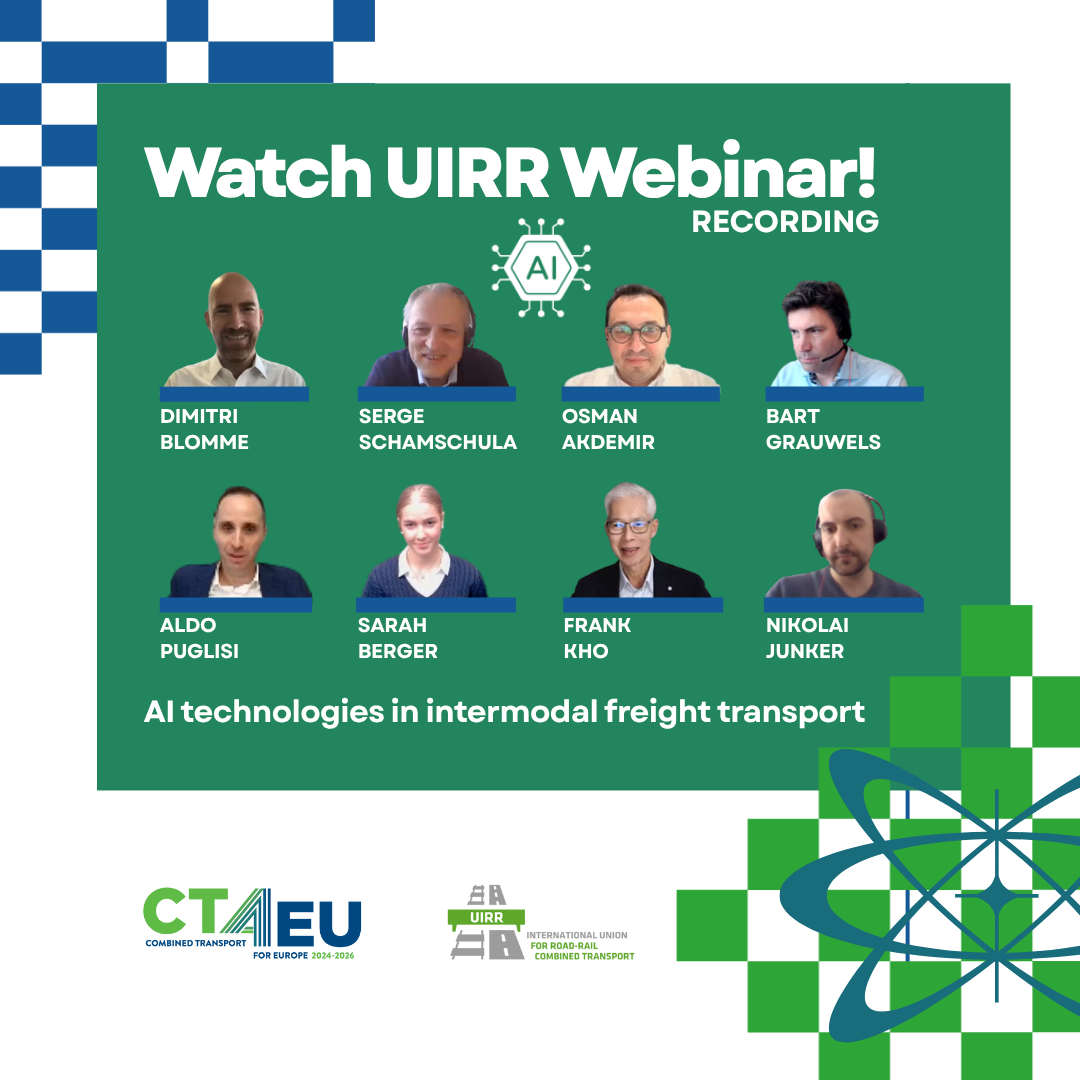The use of AI technologies in intermodal freight transport

CT4EU - UIRR Webinar on the use of 𝗔𝗜 𝗧𝗲𝗰𝗵𝗻𝗼𝗹𝗼𝗴𝗶𝗲𝘀 𝗶𝗻 𝗶𝗻𝘁𝗲𝗿𝗺𝗼𝗱𝗮𝗹 𝗳𝗿𝗲𝗶𝗴𝗵𝘁 𝘁𝗿𝗮𝗻𝘀𝗽𝗼𝗿𝘁
Tuesday, 21 October 2025 | 14:00 - 16:15 CEST
Thank you to everyone who joined our webinar! We were happy to see such a keen interest in the practical applications of AI in intermodal freight transport.
The discussion highlighted how AI is already contributing to operational improvements, as well as the prospects for the future. Here are the key takeaways:
Rather than replacing human roles, the vision for AI is to complement and support human capabilities. AI is a tool that goes hand in hand with human intelligence to create business value. As Dimitri Blomme, CEO of Clevermint emphasised it “We live in an era of collaboration between people and AI models”
There are various types of AI models that can be used in freight operations and Combined Transport:
- 𝗔𝘂𝘁𝗼𝗺𝗮𝘁𝗶𝗼𝗻: AI-powered tools can quickly process large amounts of structured and unstructured data, enabling autonomous quotation and procurement, as well as Automatic Damage Inspection (ADI), processes that reduce costs and improve operational efficiency.
- 𝗜𝗻𝘀𝗶𝗴𝗵𝘁𝘀: Data-driven intelligence can support better decision-making by optimising network planning and forecasting of estimated time of arrival (ETA) and route delays. Tools like AI-powered chatbots and network optimisation systems help to monitor disruptions and streamline operations.
- 𝗔𝘂𝗴𝗺𝗲𝗻𝘁𝗮𝘁𝗶𝗼𝗻: Automating repetitive and laborious tasks enables companies to focus on strategic thinking and creative problem-solving.
Despite these encouraging developments, the effectiveness of AI models depends on access to high-quality data. Many processes are still undergoing digital transformation, and data availability remains a key challenge when it comes to training and deploying effective AI machine-learning algorithms.
Eric Feyen, Technical Director – UIRR “AI becomes more efficient, affordable and accessible not only for the citizens but also for the companies. The intermodal sector is prepared for integrating AI models in all processes”.”
To support this transition, UIRR is actively advancing digitalisation through initiatives such as the CEF EU-funded BRIDGE project, which aims to lay the groundwork for smarter, more connected intermodal freight transport.
Many thanks again to our speakers for their insights and to all participants for the engaging discussion!
Dimitri Blomme Serge Schamschula Aldo Puglisi Sarah Berger Osman Akdemir Bart Grauwels Nikolai Junker Frank Kho Luka Robić
The Webinar recap is available here: https://www.youtube.com/playlist?list=PL-CaBB1-6CUhjQYq3UGv0mCwwwp5wiFDH
